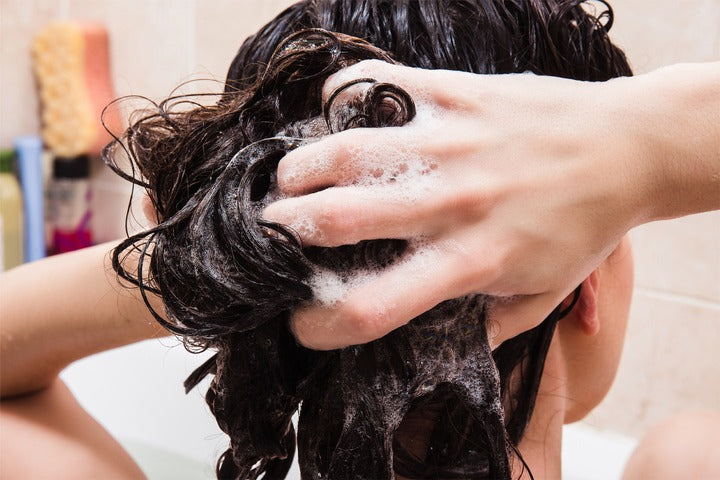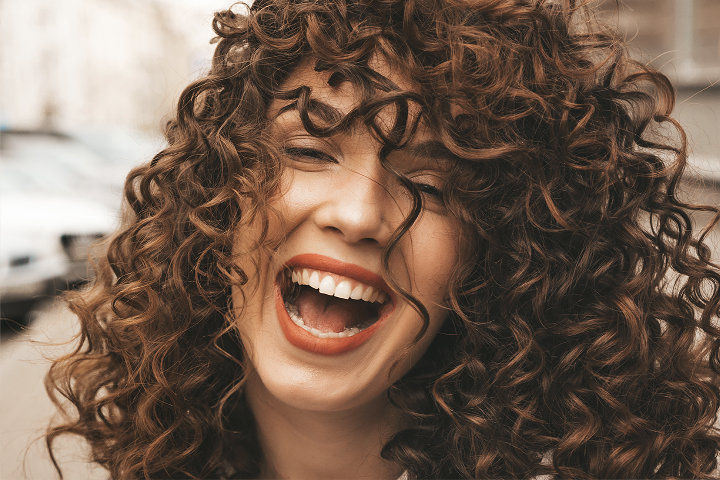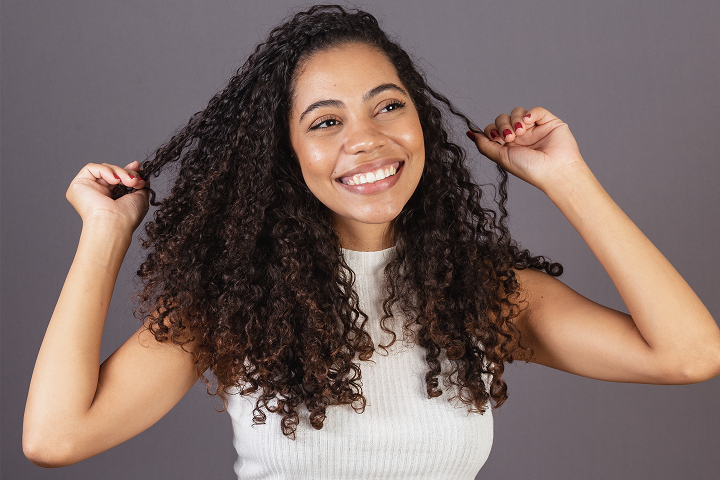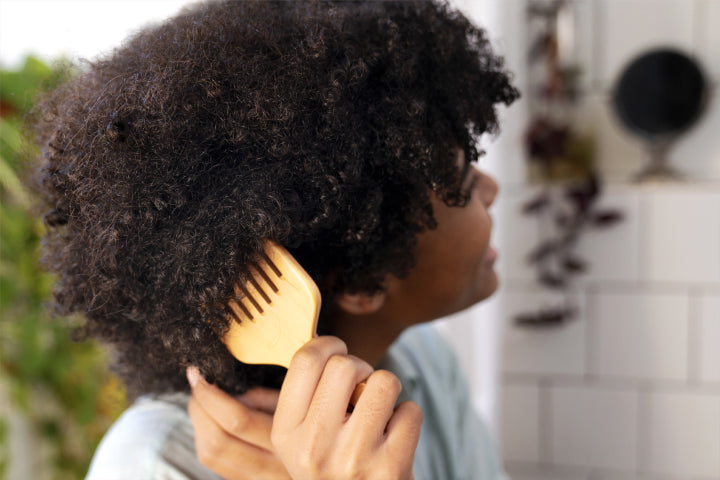From offering you our deep conditioning strength & repair hair mask to infuse your hair with a dose of moisture and nutrients to offering you the best shampoo for curly hair to moisturise and repair dry hair, we do it all to help you maintain your curls. But do you know that the type of water you use on your curls makes a lot of difference in the health and look of your curls?
Yes, that’s right! You must know that all water isn’t clean and safe for your curls. Moreover, the quality of the water you use to maintain your curls matter and you must think twice when using hard water to wash your curls.
Now, you must be wondering, “What is hard water?” “What is the difference between hard and soft water?” “What effect does hard water have on curls” and “How to protect curls from hard water?”. You will get all the answers to these questions in the blog below, so read on!
What is hard water?
Let us start this blog with the first big question, "What exactly does hard water mean?". Water that is high in mineral content like dissolved calcium, magnesium, chlorides, sulphates and carbonates is called hard water. This type of water usually leaves a residue on your showerhead or sink and produces a film-like coat on your curls. This coat is responsible for reducing the moisture level in your hair.
Did you know? According to the U.S. Geological Survey, the “hardness” of the water varies based on the area where you live. That is because the water flowing from the showers in some cities is comparatively harder than the water flowing in some other cities. The best way to find out whether you live in a hard water area is to give your hands a rinse. If you feel like there is a film in your hands, it probably means the water flowing in your area is hard.
Although hard water's mineral makeup makes it good for your heart health and bone strength, the water does not have desirable effects on your hair and skin, which we will discuss very soon.
What is the difference between hard and soft water?
The main difference between hard and soft water is the mineral makeup. While hard water contains high levels of minerals such as calcium and magnesium, soft water contains fewer minerals and has a low PH level. That is why soft water feels softer on your curls and allows you to deep clean your hair without using too much of your best shampoo for curly hair. Due to low mineral makeup, you will also notice that soft water will make your hair look shinier.
The best thing about using soft water to wash your curls with the best hair growth shampoo for curly hair is that it does not strip away the natural oils of your hair. This way, the water makes it easier for you to manage and style your curls, and that too, without dealing with the frizz that comes with washing your curls with hard water.
What effect does hard water have on curls?
Hard water is not typically harmful to your internal health and is safe to drink. However, hard water buildup can result in dry, frizzy and brittle hair that eventually results in itching and flaking. Simply put, this water makes your curls look less clean and dull. As a result, your curls will not feel as clean as they should, and you might need to use additional products to get the desired results.
Moreover, many people with a history of sensitive skin, eczema or psoriasis have noticed that hard water makes their scalp feel irritated and inflamed. The water also makes it difficult for your hair care products to function and do their job effectively. In simple words, the mineral coating on your scalp that develops when you use hard water acts as a shield against your regular hair products like shampoo, deep conditioners for curly hair, hair masks and even your hair styling tools.
Not only this but hard water strips away the natural oils in your hair that your curls need to stay healthy. Research found that hard water can decrease the elasticity and strength of your hair. So overall, here are the effects you may experience if you frequently clean your hair with hard water:
- Dry, irritated and itchy scalp
- Rough and brittle hair
- Increased chances of hair loss and breakage
- Less shine, volume and definition in curls
This list does not end here as it goes on and on. That is why you must avoid using hard water to wash your scalp, and even if you have used it, you must know how to restore hydration to your scalp and curls.
How can you protect your curls from hard water?
Sadly, you cannot control the type of water that flows through the shower in your area. But the good thing is that you can use some curl-nourishing products to minimise the impact of hard water on your hair and fix the hair damage caused by hard water.
If you do not know the best curly hair products, worry not! Here are some products we would recommend to you if you want to preserve the natural oils of your hair, maintain the moisture level of your scalp and keep your curls healthy:
- Biotin ACV Hair Shampoo by Best Life (Combined natural goodness of aloe vera and apple cider vinegar, the shampoo boosts hair strength, makes hair shiny and soothes the scalp).
- Biotin ACV Hair Conditioner by Best Life (One of the best deep conditioners for curly hair that boosts moisture and brings the volume back, leaving your curls shiny and hydrated).
- Deep Conditioning Strength & Repair Hair mask by Best Life (The mask provides intense conditioning to dry and damaged hair that needs moisture).
Related: How to Refresh Your Curls: 3 Easy and Quick Tips- Best Life
Final thoughts
So there you have it, this was all about how hard water affects your hair and curls. While we know that using soft water is an ideal choice for keeping your curls looking their best, there are still many ways to minimise the impact of hard water on your hair.
If you have hard water, consider investing in the best hair growth shampoo for curly hair, hair conditioner and deep conditioning hair masks by Best Life. With a little bit of care and pampering, you can encourage a healthy and balanced scalp with beautiful mineral-free curls no matter what!




